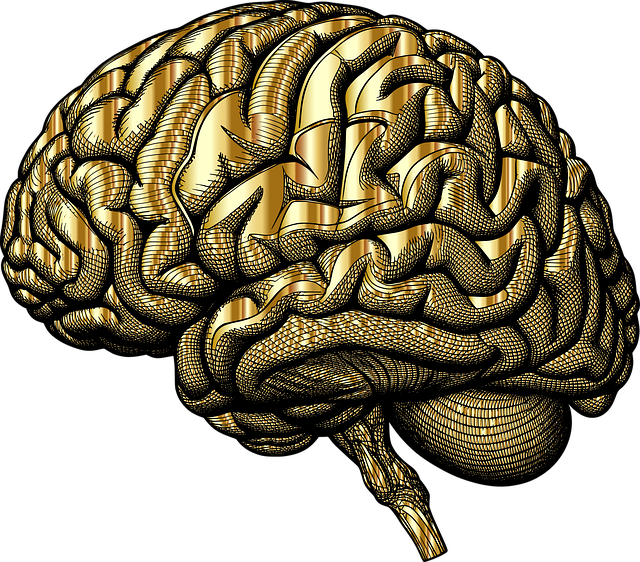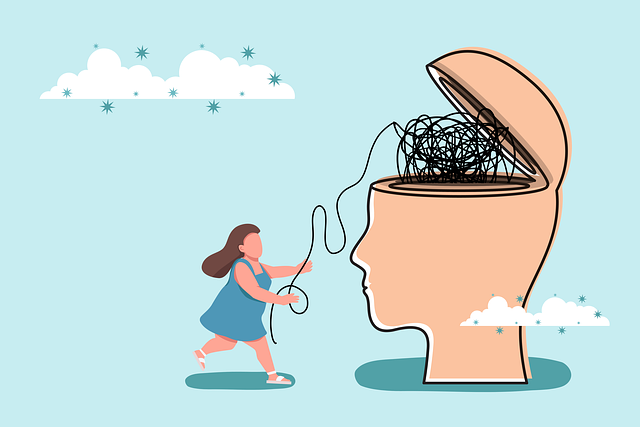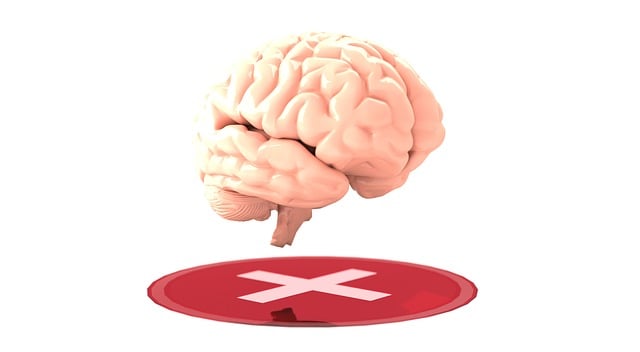Adolescent gambling is a growing concern, with early intervention crucial to prevent escalating habits that can lead to severe consequences. Mental wellness coaching, incorporating podcasts and evidence-based practices, raises awareness and provides resources for at-risk teens. Coaches create safe spaces for emotional exploration, coping strategy development, and resilience building. A holistic approach addresses complex causes like anxiety and emotional regulation using techniques like goal-setting and mindfulness. This method promotes long-term mental wellness and prevents relapse by fostering confidence and self-reliance. Measuring success involves qualitative data analysis and behavioral changes in emotional regulation, decision-making, and overall well-being.
Mental wellness coaching programs are emerging as a powerful tool in addressing rising issues like adolescent gambling. This article delves into the critical aspects of understanding and combating this growing concern among teens. We explore ‘Understanding Adolescent Gambling: Causes and Consequences’ to highlight the complexities of this issue. Subsequently, we discuss ‘The Role of Mental Wellness Coaching’, providing insights into how tailored coaching can support teen recovery. The piece also offers practical guidance on ‘Designing Effective Programs’ and ‘Strategies for Engagement’ to help professionals facilitate behavior change in young individuals struggling with gambling addiction.
- Understanding Adolescent Gambling: Causes and Consequences
- The Role of Mental Wellness Coaching in Teen Support
- Designing Effective Coaching Programs for Gambling Addiction
- Strategies to Engage Teens and Facilitate Behavior Change
- Measuring Success: Evaluating the Impact of Coaching Interventions
Understanding Adolescent Gambling: Causes and Consequences

Adolescent gambling is a growing concern within mental wellness coaching programs, as young people increasingly engage in problem gambling behaviors at an early age. This issue often stems from various factors such as peer pressure, easy access to online gaming, and underlying mental health conditions like depression or anxiety. Early intervention is crucial; without proper therapy for adolescent teens gambling, these habits can escalate and lead to severe consequences.
The impact of excessive gambling on teens extends beyond financial loss. It contributes to burnout prevention strategies for healthcare providers by increasing the demand for specialized services. Moreover, it may disrupt academic performance, damage relationships, and lead to a cycle of low self-esteem and isolation. Incorporating mental wellness podcast series production focused on these issues can raise awareness, offering valuable resources for both at-risk teens and those supporting them.
The Role of Mental Wellness Coaching in Teen Support

Mental wellness coaching plays a pivotal role in supporting teen development and mental health. For adolescents grappling with issues like gambling, which can significantly impact their emotional intelligence and overall well-being, coaches offer a non-judgmental space to explore challenges and develop coping strategies. These tailored support systems help teens navigate the complexities of adolescence while fostering resilience and self-awareness.
Through interactive sessions, mental wellness coaches assist teenagers in identifying triggers, understanding underlying causes, and learning effective management techniques. By integrating emotional intelligence practices into coaching, adolescents gain valuable skills to regulate their emotions, build healthy relationships, and make informed decisions. Moreover, regular risk assessments for mental health professionals involved in these programs ensure a proactive approach to teen support, allowing for timely interventions and personalized care.
Designing Effective Coaching Programs for Gambling Addiction

In designing effective coaching programs for gambling addiction, a holistic approach is essential to address the complex nature of this issue, especially among adolescents and teens. Therapy for adolescent teens gambling should incorporate techniques that not only help in quitting but also focus on underlying causes such as anxiety relief, burnout prevention, and emotional regulation. Coaching programs can utilize evidence-based strategies tailored to young individuals’ unique psychological needs, ensuring a supportive environment that fosters confidence and self-reliance.
Effective coaching sessions for gambling addiction should involve personalized goalsetting, cognitive-behavioral techniques to alter harmful behaviors, and the integration of mindfulness practices for stress management. By teaching emotional regulation skills, coaches can empower teens to make healthier choices while dealing with high-pressure situations. This approach not only aids in overcoming addiction but also equips young people with tools to maintain mental wellness, prevent relapse, and promote overall well-being.
Strategies to Engage Teens and Facilitate Behavior Change

Engaging teens and facilitating behavior change within mental wellness coaching programs can be achieved through innovative strategies tailored to their unique needs. One effective approach is incorporating therapy for adolescent teens gambling, as substance abuse and risky behaviors often co-occur during this developmental stage. By addressing these issues head-on, coaches create a safe space for teens to open up about their struggles and develop healthier coping mechanisms.
Empathy building strategies play a crucial role in fostering meaningful connections between coaches and teens. Encouraging positive thinking through cognitive behavioral techniques allows young individuals to challenge negative thought patterns and beliefs, ultimately improving their outlook on life and decision-making abilities. Incorporating these evidence-based practices within Mental Wellness Coaching Programs Development ensures that teens receive comprehensive support tailored to promote their mental health and well-being.
Measuring Success: Evaluating the Impact of Coaching Interventions

Measuring success in mental wellness coaching programs is a multifaceted process, especially when addressing complex issues like therapy for adolescent teens gambling. Beyond traditional metrics, evaluating the impact of coaching interventions involves delving into qualitative data and observing behavioral changes. This holistic approach includes assessing improvements in emotional regulation, decision-making skills, and overall well-being. For instance, coaches can track clients’ progress through regular self-assessments, journaling, or structured interviews, capturing insights into their emotional healing processes.
Integrating compassion cultivation practices within these coaching programs has shown promise in fostering positive outcomes. By cultivating empathy and self-compassion, teens are better equipped to navigate challenges and make healthier choices. Public awareness campaigns development around mental health issues like gambling addiction can further enhance the reach and effectiveness of coaching interventions. This synergistic approach leverages both personal growth strategies and broader societal support to create lasting changes in adolescent teen’s lives.
Mental wellness coaching programs offer a promising approach to addressing adolescent gambling addiction, providing personalized support and guidance. By integrating evidence-based strategies, these programs can effectively engage teens, facilitate behavior change, and improve their overall mental health. Through ongoing evaluation and adaptation, coaches can ensure the success of interventions tailored to meet the unique needs of young individuals struggling with gambling addiction, ultimately fostering healthier and more resilient adolescents.








